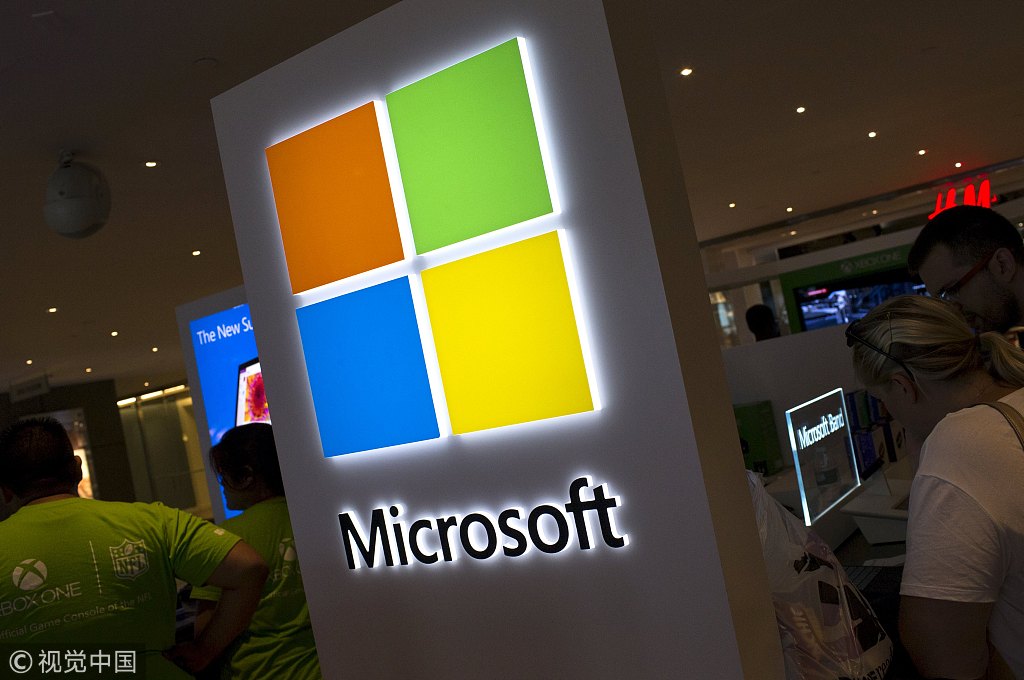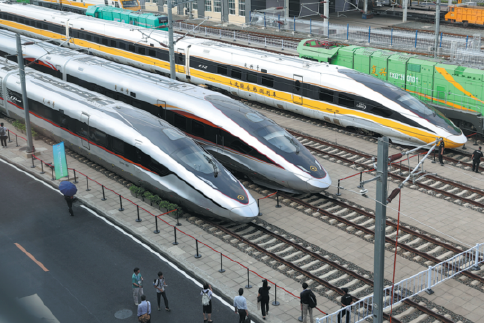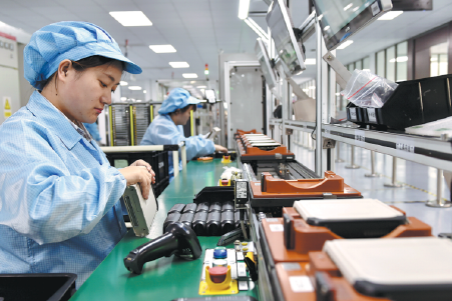Tariffs bring challenges for cloud computing industry


The booming US cloud computing sector is facing a challenge from US President Donald Trump's proposed tariffs on Chinese imports, as most of the components used for the development of information factories figure in the latest $200 billion round of tariffs.
While tariffs on some of the key electronic components for data centers have already gone into effect in two rounds of US tariffs on Chinese imports totaling $50 billion, the latest batch of tariffs are targeting every part of cloud infrastructure, including routers, switches and servers that redirect and process data, motherboards, memory modules and other key parts for data storage and cables that transfer data and connect gears.
"The proposed tariffs are the wrong solution to real problems and will punish US consumers, cost jobs, and undermine the long-term growth and innovation of the US cloud service market," said Jordan Haas, director of trade policy at the Internet Association, whose members include web-focused companies such as Amazon, Google and Facebook.
"The tariffs on imported Chinese electronic components impact the entire technology ecosystem - from consumer devices to advanced technologies and infrastructure like data centers," said Steve Koenig, senior director of market research at the US Consumer Technology Association. "Companies large and small are determining how best to cope with the situation, which could include deferring the launch of a consumer product or the building of a data center."
Data centers get caught in the trade disputes between China and the US, while US internet and cloud-computing giants are expanding investment and development of their global operations.
"Data centers play an increasingly important role in the US connected economy as more businesses embrace cloud computing, virtualization, and software as service solutions to enhance efficiency and profitability," Koenig said.
According to research from Cisco, cloud data center traffic will represent 95 percent of total data center traffic by 2021, compared to 88 percent in 2016.
The US exported more cloud computing services than it imported, generating a trade surplus of approximately $18 billion in 2017, according to the US Department of Commerce.
The trend in corporate computing is shifting away from company-owned data centers and to the cloud, making competition in cloud computing fiercer.
Microsoft's Azure business has nearly doubled, with year-on-year growth of 90 percent. The company does not generate individual revenue figures for Azure, but research firm Canalys estimates it earned $2 billion for Microsoft last year, while Google CEO Sundar Pichai said Google's Cloud Platform is one of the top-three priorities for the company, according to Reuters.
Amazon Web Services has become the company's most lucrative unit. Its sales picked up speed from the year prior, rising 49 percent to $6.1 billion, beating the estimate of $6 billion.
The rising cost of components for the development of information factories is sure to challenge the tech giant's ambitious plans for expansion in the booming market.
"Tariffs make the cost of importing electronic components and systems from China more expensive," said Koenig. "Some companies may be able to switch to a supplier in a different country, which could result in fewer orders for Chinese factories. Alternatively, companies may choose to pass along higher costs to customers."
While the cash-rich top tech companies can probably afford small, temporary increases in costs of some data center gear, the bigger concern is that tariffs will disrupt their supply chains, causing delays and slowing product roll-outs, Daniel Ives, chief strategy officer at GBH Insights, told CNN.
"[As you see] what types of products they're hitting, I think it becomes a lot more tangible, and a lot more real," Ives said.
"Ninety-five percent of motherboard parts originate in China, and while other countries could also produce these parts, the supply chain and capacity just does not exist," Haas said.




































